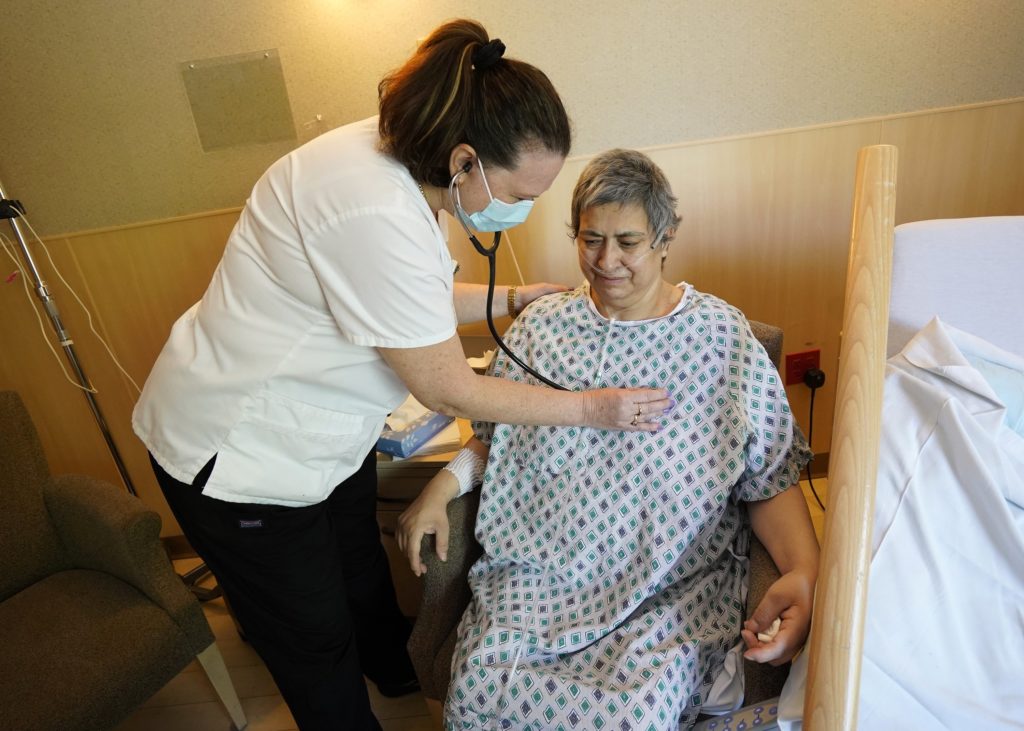Undoubtedly, for some, getting a degree in theology is exactly what God wants. They might be destined for the priesthood or religious life. Or they can be Catholics working toward careers in academia or a lay vocation as a catechist, leading an apostolate, or an evangelization effort.
But realistically, if the entire body of the laity in the Catholic Church were to dedicate their lives to study the Catholic faith at an academic level, we would simply not have time to be true to our vocation as laypeople.
It is certainly fundamental that laypeople grow in relationship with Christ and his Church through the frequent reception of the sacraments. It is also important to be an active part of a parish community and of service to it whenever possible. But having a burning passion for the Faith and love for God does not equate to altering one’s life or career.
In other words, the Church would lose if she tried turning all lay Catholics into aspiring theologians. Doesn’t the Church also need doctors, lawyers, businesspeople, accountants, nurses, engineers, social workers, communicators, and educators who see their professional field as mission territory?
I lead a Catholic organization, Tepeyac Leadership, that seeks to redirect the average lay Catholic mind, particularly that of laypeople in the professional world. We need to start thinking differently about the most effective way we, the laity, can serve God and his Church.
What if there were more committed lay Catholics in the professional world? Can you imagine how we could influence the world? Catholics are already present everywhere from the most remote corners of society all the way up to the highest spheres of power. We have Catholics — about 1.3 billion, actually, but let’s face it: What we don’t have are enough faithful Catholics.
For the longest time we’ve been getting it wrong when it comes to the role of the laity in the Church. Very often when a layperson has an experience of encounter or re-encounter with Christ, he or she ends up on fire for the Faith. So, what do they do? They go back to the parish and sign up for every “ministry” they can find. And sometimes, they set up a tent and camps at the parish. Their first instinct is to shut down the world and hide in a Catholic bubble. But is this our true vocation as laity?
Here’s an Easter challenge: consider serving Christ and his Church by taking on a leadership role in the secular world. Bishop Thomas Olmsted of Phoenix said it well: “The true call of the laity, the authentic vocation of lay Catholic men and women, is to be ambassadors of Christ in the world, living among everyone else in secular society, while striving for holiness, sanctifying the world, and witnessing to the Gospel wherever they go.”
This is our true calling, expressed boldly in many of the documents from the Second Vatican Council. By virtue of our baptism, every Catholic is called to be a leader. We are called to lead others to Christ!
But this leadership is not meant to be lived out within the confines of the Catholic faith community exclusively. Lay Catholic leaders must serve as a guiding force that illuminates every aspect of secular society with the truth of the Gospel.
For lay Catholics who are also professionals in the world, there is a unique responsibility and a privileged opportunity to influence the world for Christ. Whether they understand it or not, theirs is not an optional prerogative, but their duty as baptized children of God. They must lead. The concepts of chance or coincidence are not compatible with our Catholic faith.
If God has blessed us with a professional career, then our career is our mission field.
We’ve seen it before: Lukewarm Catholics returning to the Faith and dropping everything to become a full-time minister, aspiring theologians, or apologists. But what perhaps hasn’t occurred to them is that our legislative systems, our public health care, the mass media, our schools, and universities are crying out for more faithful lay Catholic leadership. It still has not dawned on many lay Catholic professionals that there are institutions and places in society that our beloved priests, even the pope, cannot influence the way we the laity can.
We live in a world that is hurting. Some doctors and politicians no longer defend the dignity of all human beings. Some teachers, pastors, and even parents choose to violate the innocence of the children under their care. Practices carried out in the name of science continuously defy the designs of God, making the human person a means instead of the end of its work.
In this post-pandemic world of mass shootings and terrorist attacks, it’s time for lay Catholic professionals to take a serious look at where they have the most potential to support the mission of the Church, influence the culture, and serve the common good.
After all, we can’t all be theologians.
Click here to learn more about the author's new book, “Catholic Leadership for Civil Society: A Practical Guide on Authentic Lay Leadership."

